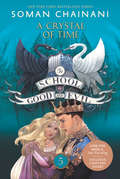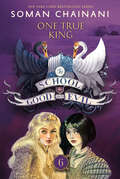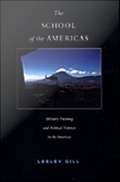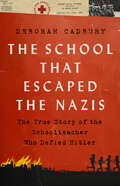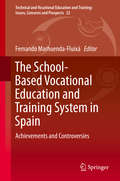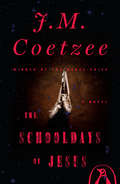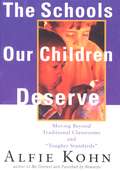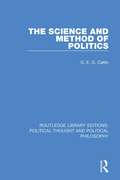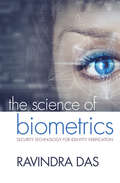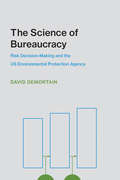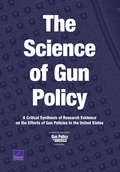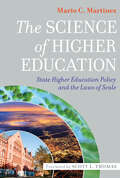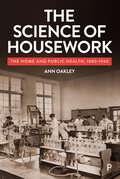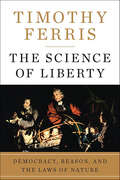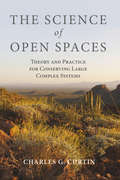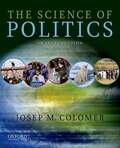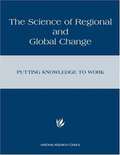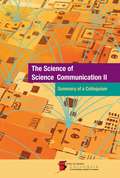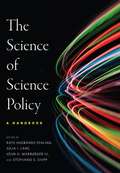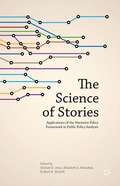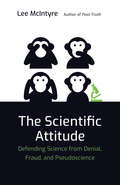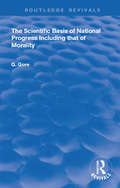- Table View
- List View
The School for Good and Evil #5: Now a Netflix Originals Movie (School for Good and Evil #5)
by Soman ChainaniTHE SCHOOL FOR GOOD AND EVIL is the #1 movie now streaming on Netflix—starring Academy Award winner Charlize Theron, Kerry Washington, Laurence Fishburne, Michelle Yeoh, Sofia Wylie, Sophie Anne Caruso, Jamie Flatters, Earl Cave, Kit Young, and many others! In this fifth installment in Soman Chainani’s New York Times bestselling The School for Good and Evil fantasy series, the past will come back to haunt the present.A false king has seized Camelot’s throne, sentencing Tedros, the true king, to death. While Agatha, narrowly escapes the same fate, Sophie is caught in King Rhian’s trap. With her wedding to Rhian approaching, she’s forced to play a dangerous game as her friends’ lives hang in the balance.All the while, King Rhian’s dark plans for Camelot are taking shape. Now the students of the School for Good and Evil must find a way to restore Tedros to the throne before their stories—and the future of the Endless Woods—are rewritten . . . forever.
The School for Good and Evil #6: Now a Netflix Originals Movie (School for Good and Evil #6)
by Soman ChainaniTHE SCHOOL FOR GOOD AND EVIL is the #1 movie now streaming on Netflix—starring Academy Award winner Charlize Theron, Kerry Washington, Laurence Fishburne, Michelle Yeoh, Sofia Wylie, Sophie Anne Caruso, Jamie Flatters, Earl Cave, Kit Young, and many others! In this sixth and final installment in Soman Chainani’s New York Times bestselling epic fantasy fairy tale series, the School for Good and Evil, Camelot’s crown—and the fate of the Endless Woods—are up for grabs.Beyond Good and Evil. Beyond Ever Afters. The tale of Sophie and Agatha comes to a dramatic conclusion. Prepare yourself for the End of Ends.The first test was passed.Excalibur pulled from the stone.A new king named.But two claim the crown.The sword returns to the stone, for only one is the true king.Who? The future I have seen has many possibilities…So by my will, none shall be crowned until the Tournament is complete.The Tournament of Kings.Three trials.Three answers to find.A race to the finish.My last coronation test.Excalibur will crown the winner and take the loser's head.The first test is coming. Prepare . . . —King ArthurIncludes an exclusive preview of BEASTS AND BEAUTY, a new collection of dangerous tales from Soman Chainani. Great for summer reading or anytime! A Today show pick for “25 children’s books your kids and teens won’t be able to put down this summer!"
The School of History: Athens in the Age of Socrates
by Mark H. MunnHistory, political philosophy, and constitutional law were born in Athens in the space of a single generation--the generation that lived through the Peloponnesian War (431-404 b.c.e.). This remarkable age produced such luminaries as Socrates, Herodotus, Thucydides, Sophocles, Euripides, Aristophanes, and the sophists, and set the stage for the education and early careers of Plato and Xenophon, among others. The School of History provides the fullest and most detailed intellectual and political history available of Athens during the late fifth century b.c.e., as it examines the background, the context, and the decisive events shaping this society in the throes of war. This expansive, readable narrative ultimately leads to a new understanding of Athenian democratic culture, showing why and how it yielded such extraordinary intellectual productivity. As both a source and a subject, Thucydides' history of the Peloponnesian War is the central text around which the narrative and thematic issues of the book revolve. Munn re-evaluates the formation of the Greek historiographical tradition itself as he identifies the conditions that prompted Thucydides to write--specifically the historian's desire to guide the Athenian democracy as it struggled to comprehend its future. The School of History fully encompasses recent scholarship in history, literature, and archaeology. Munn's impressive mastery of the huge number of sources and publications informs his substantial contributions to our understanding of this democracy transformed by war. Immersing us fully in the intellectual foment of Athenian society, The School of History traces the history of Athens at the peak of its influence, both as a political and military power in its own time and as a source of intellectual inspiration for the centuries to come.A Main Selection of the History Book Club
The School of the Americas: Military Training and Political Violence in the Americas
by Lesley GillLocated at Fort Benning in Columbus, Georgia, the School of the Americas (soa) is a U. S. Army center that has trained more than sixty thousand soldiers and police, mostly from Latin America, in counterinsurgency and combat-related skills since it was founded in 1946. So widely documented is the participation of the School's graduates in torture, murder, and political repression throughout Latin America that in 2001 the School officially changed its name to the Western Hemisphere Institute for Security Cooperation. Lesley Gill goes behind the faade and presents a comprehensive portrait of the School of the Americas. Talking to a retired Colombian general accused by international human rights organizations of terrible crimes, sitting in on classes, accompanying soa students and their families to an upscale local mall, listening to coca farmers in Colombia and Bolivia, conversing with anti-soa activists in the cramped office of the School of the Americas Watch--Gill exposes the School's institutionalization of state-sponsored violence, the havoc it has wrought in Latin America, and the strategies used by activists seeking to curtail it. Based on her unprecedented level of access to the School of the Americas, Gill describes the School's mission and training methods and reveals how its students, alumni, and officers perceive themselves in relation to the dirty wars that have raged across Latin America. Assessing the School's role in U. S. empire-building, she shows how Latin America's brightest and most ambitious military officers are indoctrinated into a stark good-versus-evil worldview, seduced by consumer society and the "American dream," and enlisted as proxies in Washington's war against drugs and "subversion. "
The School that Escaped the Nazis: The True Story of the Schoolteacher Who Defied Hitler
by Deborah CadburyNamed one of Book Riot's BEST BIOGRAPHIES OF 2022 The extraordinary true story of a courageous school principal who saw the dangers of Nazi Germany and took drastic steps to save those in harm&’s way. In 1933, the same year Hitler came to power, schoolteacher Anna Essinger saved her small, progressive school from Nazi Germany. Anna had read Mein Kampf and knew the terrible danger that Hitler&’s hate-fueled ideologies posed to her pupils, so she hatched a courageous and daring plan: to smuggle her school to the safety of England. As the school she established in Kent, England, flourished despite the many challenges it faced, the news from her home country continued to darken. Anna watched as Europe slid toward war, with devastating consequences for the Jewish children left behind. In time, Anna would take in orphans who had given up all hope: the survivors of unimaginable horrors. Anna&’s school offered these scarred children the love and security they needed to rebuild their lives. Featuring moving firsthand testimony from surviving pupils, and drawing from letters, diaries, and present-day interviews, The School that Escaped the Nazis is a dramatic human tale that offers a unique perspective on Nazi persecution and the Holocaust. It is also the story of one woman&’s refusal to allow her belief in a better world to be overtaken by hatred and violence.
The School-Based Vocational Education and Training System in Spain: Achievements and Controversies (Technical and Vocational Education and Training: Issues, Concerns and Prospects #32)
by Fernando Marhuenda-FluixáThis book discusses the developments in policy and practice in the field of formal, non-formal and continuing vocational education and training in Spain since 1970. It describes how VET has been transformed and become one of the country’s main areas of pedagogical innovation, and also examines current developments, such as the role of non-formal vocational education and training, the accreditation of vocational qualifications acquired in the non-formal system, and the adoption of dual apprenticeships that bear little resemblance to central European dual systems.Written by respected researchers in these fields, the first section is informative and analytical, offering a description of the system and comments based on academic literature and research. The second section illustrates the research on relevant issues, portraying empirical data from different regions in Spain, as well as nationwide data. Explaining and interpreting data on the basis of the authors’ different theoretical frameworks, the book provides a comprehensive, updated and accurate overview of VET and relevant research in Spain, as well as their relation to European and global developments.
The Schooldays of Jesus
by J. M. CoetzeeLONGLISTED FOR THE MAN BOOKER PRIZEFrom the Nobel Prize-winning author J. M. Coetzee, the haunting sequel to The Childhood of Jesus, continuing the journey of Davíd, Simón, and Inés “When you travel across the ocean on a boat, all your memories are washed away and you start a completely new life. That is how it is. There is no before. There is no history. The boat docks at the harbour and we climb down the gangplank and we are plunged into the here and now. Time begins.”Davíd is the small boy who is always asking questions. Simón and Inés take care of him in their new town, Estrella. He is learning the language; he has begun to make friends. He has the big dog Bolívar to watch over him. But he’ll be seven soon and he should be at school. And so, with the guidance of the three sisters who own the farm where Simón and Inés work, Davíd is enrolled in the Academy of Dance. It’s here, in his new golden dancing slippers, that he learns how to call down the numbers from the sky. But it’s here, too, that he will make troubling discoveries about what grown-ups are capable of. In this mesmerizing allegorical tale, Coetzee deftly grapples with the big questions of growing up, of what it means to be a “parent,” the constant battle between intellect and emotion, and how we choose to live our lives.From the Hardcover edition.
The Schools Our Children Deserve: Moving Beyond Traditional Classrooms and "Tougher Standards"
by Alfie KohnIn this "lively, provocative and well-researched book" (Theodore Sizer), AlTe Kohn builds a powerful argument against the "back to basics" philosophy of teaching and simplistic demands to "raise the bar." Drawing on stories from real classrooms and extensive research, Kohn shows parents, educators, and others interested in the debate how schools can help students explore ideas rather than filling them with forgettable facts and preparing them for standardized tests. Here at last is a book that challenges the two dominant forces in American education: an aggressive nostalgia for traditional teaching ("If it was bad enough for me, it's bad enough for my kids") and a heavy-handed push for Tougher Standards.
The Science and Method of Politics (Routledge Library Editions: Political Thought and Political Philosophy #12)
by G. E. CatlinOriginally published in 1927, this book was written as a reaction to the First World War, hoping to try and analyse the causes leading up to it. The author states in the Preface that he puts this forward as an unsystematic contribution to what he is conscious is a very great subject, and he adds since Aristotle, an almost untouched one. He starts by looking at the nature, methods and uses of history, considered from a political point of view. He goes on to look at the possibility of a political science; the place of politics among the social sciences, and the process of politics. In conclusion he considers the relation of politics and ethics.
The Science and Politics of Global Climate Change
by Andrew E. Dessler Edward A. ParsonThe second edition of Dessler and Parson's acclaimed book provides an integrated treatment of the science, technology, economics, policy, and politics of climate change. Aimed at the educated non-specialist, and at courses in environmental policy or climate change, the book clearly lays out the scientific foundations of climate change, the issues in current policy debates, and the interactions between science and politics that make the climate change debate so contentious and confusing. This new edition is brought completely up to date to reflect the rapid movement of events related to climate change. In addition, all sections have been improved, in particular a more thorough primer on the basic science of climate change is included. The book also now integrates the discussion of contrarian claims with the discussion of current scientific knowledge; extends the discussion of cost and benefit estimates; and provides an improved glossary.
The Science of Biometrics: Security Technology for Identity Verification
by Ravindra DasThe Science of Biometrics: Security Technology for Identity Verification covers the technical aspects of iris and facial recognition, focusing primarily on the mathematical and statistical algorithms that run the verification and identification processes in these two modalities. Each chapter begins with a review of the technologies, examining how they work, their advantages and disadvantages, as well as some of their established market applications. Numerous approaches are examined. Facial recognition is much more of an emerging biometric technology than iris recognition; therefore, there are more algorithms that are currently being developed in that area. After this review, numerous applications of these two modalities are covered as well, some of which have just been commercially deployed while others are under research and development. Chapters 3 and 4 conclude with case studies to provide further application review. This book is directed to security managers, electronic security system designers, consultants, and system integrators, as well as electronic security system manufacturers working in access control and biometrics.
The Science of Bureaucracy: Risk Decision-Making and the US Environmental Protection Agency (Inside Technology)
by David DemortainHow the US Environmental Protection Agency designed the governance of risk and forged its legitimacy over the course of four decades.The US Environmental Protection Agency was established in 1970 to protect the public health and environment, administering and enforcing a range of statutes and programs. Over four decades, the EPA has been a risk bureaucracy, formalizing many of the methods of the scientific governance of risk, from quantitative risk assessment to risk ranking. Demortain traces the creation of these methods for the governance of risk, the controversies to which they responded, and the controversies that they aroused in turn. He discusses the professional networks in which they were conceived; how they were used; and how they served to legitimize the EPA. Demortain argues that the EPA is structurally embedded in controversy, resulting in constant reevaluation of its credibility and fueling the evolution of the knowledge and technologies it uses to produce decisions and to create a legitimate image of how and why it acts on the environment. He describes the emergence and institutionalization of the risk assessment–risk management framework codified in the National Research Council's Red Book, and its subsequent unraveling as the agency's mission evolved toward environmental justice, ecological restoration, and sustainability, and as controversies over determining risk gained vigor in the 1990s. Through its rise and fall at the EPA, risk decision-making enshrines the science of a bureaucracy that learns how to make credible decisions and to reform itself, amid constant conflicts about the environment, risk, and its own legitimacy.
The Science of Gun Policy: A Critical Synthesis of Research Evidence on the Effects of Gun Policies in the United States
by RAND CorporationThis report synthesizes the available scientific evidence on the effects of various firearm policies on firearm deaths, violent crime, the gun industry, participation in hunting and sport shooting, and other outcomes. Based on this synthesis, the authors highlight policies whose effects are better supported by evidence and areas where more and better information could contribute to establishing fair and effective gun policies.
The Science of Higher Education: State Higher Education Policy and the Laws of Scale
by Mario C. MartinezPerennial conclusions from state-by-state funding-per-student analyses of underfunding and weak state commitment have become so common that they have diluted the potency of the argument to state policymakers for more higher education funding. In addition, there has been little in the way of testing or questioning the assumptions embedded in traditional funding per student analysis and its accompanying conclusions.As state legislators balance the competing needs of education, health, transportation, and public safety budgets, they increasingly ask what return on investment (ROI) they get for the funding they provide, including from higher education. The ROI language, while potentially unsettling for its corporate-like and neoliberal connotation, will persist into the foreseeable future. We must ask questions both of adequacy (How much funding should the states provide?) and benefit (What benefits do states receive for the higher education funding they provide?). The focus on traditional funding per student analysis has remained static for over forty years, indicating the need for new ideas and methods to probe questions of adequacy and benefit.The Science of Higher Education is an introduction to a new paradigm that explores state higher education funding, enrollment, completion, and supply (the number and type of institutions in a state) through the lens of what are commonly known as power laws. Power laws explain patterns in biological systems and characteristics of cities. Like cities, state higher education systems are complex adaptive systems, so it is little surprise that power laws also explain funding, enrollment, completion, and supply.The scale relationships uncovered in the Science of Higher Education suggest the potential benefits state policymakers could derive by emphasizing enrollment, completion, or capacity policies, based on economies of scale, marginal benefits, and the return state’s get on enrollment and completion for the funding they provide.The various features of state higher education systems that conform to scale patterns do not alone provide definitive answers for appropriate funding levels, however. As this book addresses, policymakers need to take into account the macro forces, from demography to geography and the economy, that situate the system, as well the interactions between government and market actors that are at the core of every state higher education system and influence the outcomes it achieves.
The Science of Housework: The Home and Public Health, 1880-1940
by Ann OakleyIn an era of pandemic infection, the importance of hygiene at home and in public spaces has never been greater. This book recaptures the buried history of the household science movement, including domestic science teaching, public health, higher education for women and the scientific content and aims of domestic science courses. It explores how it was viewed in the context of new public health concerns and as a driver to opening higher education to women, raising questions about the legacy and modern relevance of the household science movement.
The Science of Liberty: Democracy, Reason, and the Laws of Nature
by Timothy Ferris“Ferris is a master analogist who conveys his insights on the history of cosmology with a lyrical flair.” —The New York Times Book ReviewIn The Science of Liberty, award-winning author Timothy Ferris—called “the best popular science writer in the English language today” by the Christian Science Monitor and “the best science writer of his generation” by the Washington Post—makes a passionate case for science as the inspiration behind the rise of liberalism and democracy. In the grand tradition of such luminaries of the field as Bill Bryson, Richard Dawkins, and Oliver Sacks—as well as his own The Whole Shebang and Coming of Age in the Milky Way—Ferris has written a brilliant chronicle of how science sparked the spread of liberal democracy and transformed today’s world.
The Science of Open Spaces
by Charles CurtinFrom the days of the American Frontier, the term "open spaces" has evoked a vision of unspoiled landscapes stretching endlessly toward the horizon, of nature operating on its own terms without significant human interference. Ever since, government agencies, academia, and conservation organizations have promoted policies that treat large, complex systems with a one-size-fits-all mentality that fails to account for equally complex social dimensions of humans on the landscape. This is wrong, argues landscape ecologist and researcher Charles Curtin. We need a science-based approach that tells us how to think about our large landscapes and open spaces at temporally and spatially appropriate scales in a way that allows local landowners and other stakeholders a say in their futures. The Science of Open Spaces turns conventional conservation paradigms on their heads, proposing that in thinking about complex natural systems, whether the arid spaces of the southwestern United States or open seas shared by multiple nations, we must go back to "first principles"--those fundamental physical laws of the universe--and build innovative conservation from the ground up based on theory and backed up by practical experience. Curtin walks us through such foundational science concepts as thermodynamics, ecology, sociology, and resilience theory, applying them to real-world examples from years he has spent designing large-scale, place-based collaborative research programs in the United States and around the world. Compelling for not only theorists and students, but also practitioners, agency personnel, and lay readers, this book offers a thoughtful and radical departure from business-as-usual management of Earth's dwindling wide-open spaces.
The Science of Politics: An Introduction
by Josep M. ColomerA broad, accessible, and rigorous overview of politics, The Science of Politics: An Introduction introduces students to the most substantive and important issues in the field. Josep M. Colomer takes a unique approach to the study of politics, addressing it from two points of departure: as a fundamental human activity to pursue the common interests of the members of a community (i.e., the "public good") and as the subject of systematic and reliable knowledge (i.e., science). This method helps to bridge a persistent gap between developments in research and actual teaching in the discipline. It provides students with the best possible foundation to build upon as they move into more advanced study in the field.
The Science of Regional and Global Change: PUTTING KNOWLEDGE TO WORK
by National Research CouncilThis report is intended to promote a dialogue between the scientific community and the government officials who will lead our nation in the coming years on global change research. The first section of the report is a brief description of the challenges and proposed responses needed from the highest levels of the government and the second provides more detailed discussion and is directed to agency-level issues and responses. The last section is a detailed bibliography that lists many of the specific reports on which the views outlined here are ultimately based.
The Science of Science Communication II: Summary of a Colloquium
by Arthur M. Sackler Colloquia of the National Academy of SciencesSuccessful scientists must be effective communicators within their professions. Without those skills, they could not write papers and funding proposals, give talks and field questions, or teach classes and mentor students. However, communicating with audiences outside their profession - people who may not share scientists' interests, technical background, cultural assumptions, and modes of expression - presents different challenges and requires additional skills. Communication about science in political or social settings differs from discourse within a scientific discipline. Not only are scientists just one of many stakeholders vying for access to the public agenda, but the political debates surrounding science and its applications may sometimes confront scientists with unfamiliar and uncomfortable discussions involving religious values, partisan interests, and even the trustworthiness of science. The Science of Science Communication II is the summary of a Sackler Colloquium convened in September 2013 At this event, leading social, behavioral, and decision scientists, other scientists, and communication practitioners shared current research that can improve the communication of science to lay audiences. In the Sackler Colloquia tradition, the meeting also allowed social and natural scientists to identify new opportunities to collaborate and advance their own research, while improving public engagement with science. Speakers provided evidence-based guidance on how to listen to others so as to identify their information needs, ways of thinking about the world, and the cultural stereotypes regarding scientists. They delved deeply into the incentive systems that shape what scientists study and how they report their work, the subtle changes in framing that can influence how messages are interpreted, the complex channels that determine how messages flow, and the potential politicization of scientific evidence.
The Science of Science Policy
by Kaye Husbands Fealing Julia I. Lane John H. Marburger Stephanie S. ShippContributors from political science, economics, and various specific natural and social sciences, analyze the formation of public science policy with a theoretical and methodological rigor that is common to most areas of policy but not, they say, of science policy. Covering in turn theory, measurement and data issues, and practical matters, they discuss such topics as sociology and the science of science policy, a situated cognition view of innovation with implications for innovative policy, legacy and new databases for linking innovation to impact, a vision of data and analytics for the science of science policy, the problems of political design in federal innovation organization, and institutional ecology and the social outcomes of scientific research. Annotation ©2011 Book News, Inc. , Portland, OR (booknews. com)
The Science of Stories
by Michael D. Jones Elizabeth A. Shanahan Mark K. McbethThe study of narratives in a variety of disciplines has grown in recent years as a method of better explaining underlying concepts in their respective fields. Through the use of Narrative Policy Framework (NPF), political scientists can analyze the role narrative plays in political discourse.
The Sciences Po Series in International Relations and Political Economy
by Samy CohenNumerous democratic nations have been singled out by NGOs for brutality in their modus operandi, for paying inadequate attention to civilian protection or for torture of prisoners. This book deals with the difficulties faced when conducting asymmetric warfare in populated areas without violating humanitarian law.
The Scientific Attitude: Defending Science from Denial, Fraud, and Pseudoscience (The\mit Press Ser.)
by Lee McIntyreAn argument that what makes science distinctive is its emphasis on evidence and scientists' willingness to change theories on the basis of new evidence.Attacks on science have become commonplace. Claims that climate change isn't settled science, that evolution is “only a theory,” and that scientists are conspiring to keep the truth about vaccines from the public are staples of some politicians' rhetorical repertoire. Defenders of science often point to its discoveries (penicillin! relativity!) without explaining exactly why scientific claims are superior. In this book, Lee McIntyre argues that what distinguishes science from its rivals is what he calls “the scientific attitude”—caring about evidence and being willing to change theories on the basis of new evidence. The history of science is littered with theories that were scientific but turned out to be wrong; the scientific attitude reveals why even a failed theory can help us to understand what is special about science. McIntyre offers examples that illustrate both scientific success (a reduction in childbed fever in the nineteenth century) and failure (the flawed “discovery” of cold fusion in the twentieth century). He describes the transformation of medicine from a practice based largely on hunches into a science based on evidence; considers scientific fraud; examines the positions of ideology-driven denialists, pseudoscientists, and “skeptics” who reject scientific findings; and argues that social science, no less than natural science, should embrace the scientific attitude. McIntyre argues that the scientific attitude—the grounding of science in evidence—offers a uniquely powerful tool in the defense of science.
The Scientific Basis of National Progress (Routledge Revivals)
by G. GorePublished in 1970: The leading idea of the book is that present knowledge only enables us to maintain our present state, that national progress is the result of new ideas, and that the chief source of new ideas is original research. That as advance has its origin in new knowledge; unless new discoveries are made, new inventions and improvements must sooner or later cease. Another prominent idea is, that truth is essentially the same in all divisions of knowledge, and that the mental powers and processes employed in detecting it are the same in all subjects.
